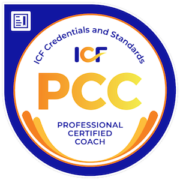 This time of year always feels like hitting a reset button in my house. My daughter is back in school learning new things and I’m able to refocus on work and ending the year strong.
This time of year always feels like hitting a reset button in my house. My daughter is back in school learning new things and I’m able to refocus on work and ending the year strong.
It’s a great time to think about the larger goals of raising our children. Are we helping them gain the important skills young people need to be independent and resilient? Are we fostering in them a sense of confidence about making decisions on their own? Are we raising them to be happy and healthy throughout their lives?
As parents, it’s easy to focus on right now instead of the bigger picture. It’s faster to help the little ones tie their shoes rather than teaching them how to do it themselves, just as it’s simpler to help the older ones with their homework rather than giving them the tools and skill to figure it out on their own.
However, taking the long view, when are they ever going to figure out how to tie their shoes or do pre-algebra homework if you’re there to do it for them? More importantly, how are they going to gain confidence that they can learn new skills, even when they seem hard?
That’s why for the next few blog posts, I’m going to focus on the top 7 life skills kids need in order to grow into happy, resilient adults. Let’s jump in with the first skill.
Safety
Teaching young people safety skills is an area with many misconceptions. Remember “stranger danger” from a few decades ago? The scenario with the unmarked van and a stranger offering kids candy is not the only unsafe situation for children or teens these days, but I know I still struggle with how much independence I give my daughter and talk to her about a variety of scenarios. I find it’s a delicate balance between teaching a child to be cautious and discerning or raising an anxious and fearful child.
Depending on the age of your children, teaching safety skills can vary widely of course. No child is too young to set them up with a foundation for confidence about themselves and their right to safety. As they mature, you can add more information, as you deem appropriate.
Personal Safety
Share with your kids that they are in charge of their own body and feelings, and it is not okay if they feel uncomfortable with the way another person is acting toward them, even if it’s a person they know or trust. Teach them correct terminology for their body parts, which areas are private, and that no one has the right to touch them in a way they don’t like or force them to touch the other person’s private body parts.
Let them know that you are always a safe ally for them to talk to, and that includes if they feel as though they’ve done something wrong. Ensure that they know they must not keep secrets from you even if they think it might hurt your feelings or someone else’s feelings. Let them know that you will love and accept them no matter what. These discussions may feel uncomfortable but it is critical to have them.
Cyber Safety
This is an area where many adults freeze up and feel insecure because it’s just so different than when we were young. My own 8 year-old daughter has been asking me if she can have an Instagram or Facebook account (of course I said “Absolutely not!!) and she often figures things out on my iPad or iPhone much faster than I can! As a parent, there are concrete things you must talk about to keep your kids and teens safe. Sit down together and establish these ground rules for online safety because kids don’t often consider the long term consequences of their actions.
- Don’t share personal information online. This includes your home address, phone number, passwords, birthdays, and where you are
 located or if you are home.
located or if you are home. - Set passwords together. Talk about what makes a good password and practice setting them up.
- Discuss posting photos online, what’s acceptable, what’s not, and why.
- Teach online respect too. Talk about cyber bullying behaviors and open a dialogue about what your kids have read or heard that is disrespectful and how that affects the people on the receiving end of hurtful statements.
Next time, we’ll talk about the skills your child needs for emotional and physical health, so stay tuned. In the meantime, I would love your comments about the skills you think children need to be happy throughout their lives.








